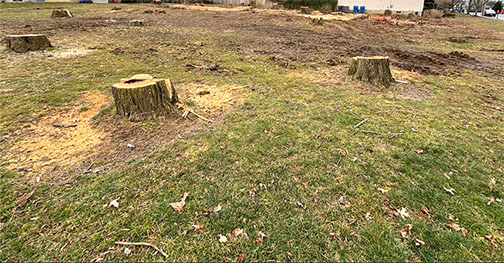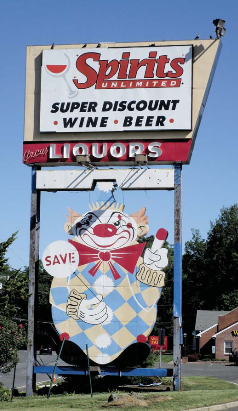
By Stephen Appezzato
MIDDLETOWN – Officials introduced the township’s 2024 budget, reflecting increased operating costs, new state mandates and more costs to fight builder’s remedy lawsuits.
The budget, which will be presented at a public hearing May 20, contains a $2,402,341 municipal tax levy hike, bringing the total levy to $63,224,323. While the proposed tax rate decreased from .403 to .382, because of booming property values, the lower rate will generate more local revenue than last year.
“Our (property) assessments increase pretty significantly each year,” said township CFO Colleen Lapp. “In the five years since 2019 until now, the average assessed value of a home has increased 47%,” she said. “If you were able to invest in real estate, you have a pretty good return on your investment.”
While the national inflation rate has risen significantly since 2020, Lapp is satisfied Middletown has been able to keep certain costs in check. “In the same four years where inflation has increased by 20.4%, our levy is a total of 12.81%, and that’s nearly 8% less than the national average,” she said.

Although a positive sign, the township will still face cost increases for “day-to-day” things like labor, purchasing and equipment, which has increased “exponentially” – in some cases up to 100% for certain items. Similarly, the township will pay $1.65 million more in health insurance costs, which Lapp said were the lowest they could secure. “We try to look at every way that we can to save money, but yet still provide,” Lapp said.
Property values and inflation aren’t the only numbers that rose this year. Some of the $2.4 million levy increase will pay for costs incurred from state mandates, as well as builder’s remedy lawsuits.
Specifically, township officials seemed outraged over a recent decision by the state Department of Environmental Protection (NJDEP) requiring towns to frequently test stormwater runoff and bulk-pickup leaves at composting sites for pollutants, which will cost the town $225,000.
“So, every time it rains, we have to test the water that accumulates in and near leaves? For what purpose?” Mayor Tony Perry asked.
“The intent seems to be to make sure the quality of the water isn’t detrimental to the environment,” township administrator Tony Mercantante explained.
“But you know, we have to send somebody there literally every time it rains, collect the sample, drive it to a lab, pay the lab to have a tested, (and) look at the results. Results are going to be pretty much the same every time and usually aren’t detrimental. But again, that’s a requirement they’re making us adhere to,” Mercantante said.
He confirmed that part of the money allotted for testing is for NJDEP permitting. “OK, so this is just a line item to pay the state of New Jersey so that we have to test stormwater after a rainstorm,” Perry said.
Like other Two River towns, Middletown will also have to adopt a tree removal and replacement ordinance as per a 2023 NJDEP ruling. This will require the township to hire a certified tree expert to evaluate residents’ tree removal applications; residents must also replant lost trees or pay into a tree fund to maintain the township’s canopy.
“I just think it’s absurd for the government to be getting into people’s backyards and telling them what they can do with trees,” Mercantante said. “It sounds like a really cute idea, but until a town the size of Middletown tries to implement that, I mean, who could possibly keep up with every tree that gets removed?” he said.
Additionally, officials mentioned a forthcoming state policy where towns must street sweep every road three times a year. When implemented, frequently cleaning Middletown’s nearly 1,000 miles of roadway will be costly.
Mercantante said the state “legally” should provide the township with funds to implement these mandates, “but they never do.” Instances like these are known as unfunded mandates, where the cost of adhering to a federal or state policy falls on a smaller public body, like a township. In the past, Perry has spoken out against unfunded mandates, particularly one dealing with bail reform during a wave of car thefts.
The 2024 budget also earmarks an extra $200,000 for the planning department to combat builder’s remedy lawsuits. These lawsuits are brought against towns that fail to meet affordable housing requirements under the Mount Laurel doctrine in the state constitution. This doctrine requires towns to work to create a realistic opportunity for a fair share of low- and moderate-income housing.
“There can be larger costs (associated with affordable housing) down the road if you don’t do the things up front,” Lapp said. “Sometimes you have to make that initial investment to make sure that we’re doing the right things for everyone.”
In the past year, township officials have said some fair share housing projects are too high-density.
“The $200,000 is for us to prevent the high-density housing that we’ve been discussing for, you know, many, many, many, many months – years now. This is to say that we have an appropriation that allows us to continue to fight against that high-density housing,” Perry said.
Lapp assured the township committee that the focus of the 2024 budget was maintaining important services offered to residents while navigating costs from unfunded mandates and inflation and keeping tax levy increases as low as possible.
Residents will have an opportunity to comment on the budget at its hearing and adoption vote May 20.
The article originally appeared in the April 15 – May 1, 2024 print edition of The Two River Times.














